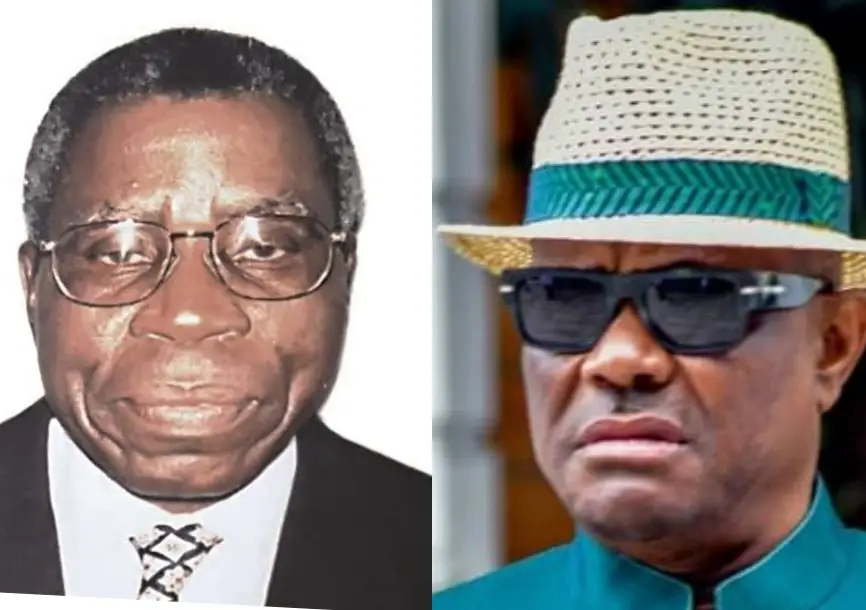By Wándé T. Àjàyí
Politics in Nigeria has always been an enthralling game of loyalty, pragmatism, and, most often, survival. The case of the late Chief Bola Ige, a founding member of the Alliance for Democracy (AD), and his decision to serve in the People’s Democratic Party (PDP)-led government as Minister of Justice and Attorney General, presents a perfect example of how political interests often blur ideological lines. Many often wondered if Bola Ige had not been tragically assassinated in 2001, would he have remained committed to AD in the 2003 elections, or would his role as a minister under a PDP government have influenced his political choices? This same question looms over the PDP today with the lingering presence of a certain Nyesom Wike, who, despite his long-standing membership in the party, seems to have found comfort in the embrace of the ruling All Progressives Congress (APC) and President Bola Tinubu. Perhaps, just as AD struggled with internal wranglings and eventually faded into political irrelevance after Ige’s death, the PDP risks suffering the same fate if it continues to indulge Wike’s political games.
Bola Ige’s decision to accept a ministerial position under the PDP government was met with mixed reactions at the time. Some saw it as a strategic move to ensure the Southwest had a voice in national politics, while others viewed it as a betrayal of AD’s core principles or even President Obasanjo’s master stroke to reclaim his Zone. Yet, despite his ministerial appointment, Ige never publicly abandoned his party. Unlike Wike, whose romance with APC has become a full-blown political drama, Ige maintained a delicate balance, ensuring that his loyalty to AD was never in doubt. Today, the PDP finds itself in a similar dilemma. Should it continue to tolerate Wike’s dual allegiances, or should it chart a new course without him? More worrisome is the growing suspicion that Wike’s antics may not be mere political survival tactics, but a calculated strategy orchestrated by President Bola Tinubu to decimate the PDP ahead of the 2027 elections. If this is true, then the party’s continued tolerance of Wike could be its undoing.
The AD serves as a cautionary tale. After Bola Ige’s death, the party lost its prominence, unable to withstand internal divisions and external pressures. The PDP must learn from this and realize that its continuous preoccupation with Wike is a distraction that could cost it dearly. Tinubu, a proven master strategist, has a history of dismantling opposition structures, and it wouldn’t be far-fetched to think that Wike’s position within the PDP is part of a larger plot to weaken the party from within. The PDP should focus on building a strong opposition, reconnecting with its grassroots supporters, and presenting itself as a credible alternative to the APC. Holding on to individuals who are visibly aligning with the ruling party only weakens the PDP’s credibility and sends the wrong message to loyal party members who have remained steadfast through challenging times.
Ultimately, politics should be about principles, not personalities. If Wike has found comfort in working with the APC, then the PDP should graciously ease him out and focus on strengthening the party with leaders who are fully committed to its vision. Just as AD’s failure to address internal discord led to its downfall, PDP must avoid the same mistake. Wike’s current flirtation with the APC should not dictate PDP’s future. It’s time for the party to move forward, leaving behind distractions and focusing on the bigger picture of rebuilding and reclaiming its place in Nigeria’s political landscape before it’s too late.
Wándé T. Àjàyí writes from Akure, the Ondo State capital.







Leave a Reply